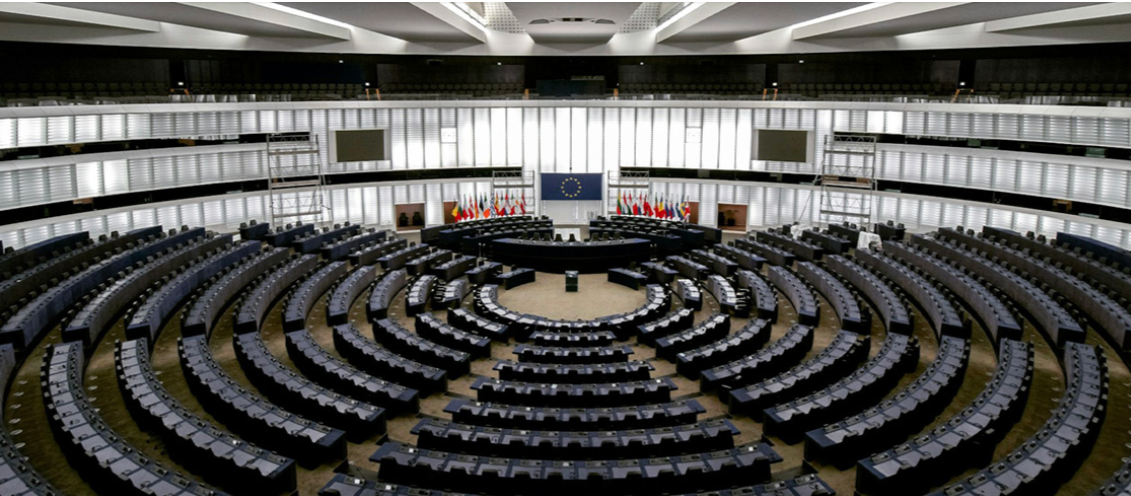The EU Parliament calls on China to free economist Ilham Tohti and Uyghur physician Gulshan Abbas.
The European Parliament (EP) in session in Strasbourg adopted a landmark motion urging the People’s Republic of China (PRC) to ‘immediately and unconditionally release Ilham Tohti and Gulshan Abbas, as well as those arbitrarily detained in China’ and whose cases have been mentioned by the European Union (EU) at the Human Rights Council.
The text lays out a strongly-worded demand that the PRC halts its ‘repression and targeting of Uyghurs’, including forced sterilisation, birth prevention measures, the destruction of Uyghur identity and other abuses ‘which amount to crimes against humanity and a serious risk of genocide’.
The EP lamented that 62-year-old retired doctor Gulshan Abbas is ‘serving a 20-year sentence on fallacious terrorism-related charges relating to activities of her sister, a defender of the human rights of persecuted Uyghurs in the PRC’.
The resolution also regretted that Uyghur economist Ilham Tohti, winner of the EP’s 2019 Sakharov Prize for Freedom of Thought, was sentenced to life imprisonment on charges of ‘separatism’ despite striving to ‘foster dialogue between Uyghurs and Han Chinese’.
Today’s resolution was adopted by an overwhelming majority of 540 out of 610 voting members of the European parliament (MEPs), with only 23 oppositions and 47 abstentions.
In September, ISHR joined Dr. Abbas’ daughter, Ziba Murat, in an advocacy mission to engage extensively with MEPs leading to today’s historic resolution.
Dr. Abbas has been arbitrarily detained since 2018, and held incommunicado most of that time. In June 2024, UN experts sent a letter to the Chinese authorities and later released a statement on Dr. Abbas’ situation. Under mounting pressure from UN bodies and Western governments, Beijing finally disclosed Dr. Abbas’ whereabouts, sentence, and stated date of release, scheduled for 2038.
This was the first written acknowledgement that the Chinese authorities are holding Dr. Abbas ever since her abrupt forced disappearance six years ago. However, China failed to address UN experts’ request for disclosure of detailed information on her health, of her court judgment and evidence used to convict her.
Dr. Abbas was forcibly disappeared on 10 September 2018, in retaliation for her sister Rushan Abbas’ public advocacy in the United States against the persecution of Uyghurs in China a few days prior.
She has multiple health concerns which require medication and medical attention, including severe high blood pressure, back pain often leading to immobilisation, osteoporosis, and recurring migraines. Both her eyes have undergone multiple surgeries and require monitoring.
In March 2023, the UN Working Group on Arbitrary Detention released an authoritative, quasi-judicial opinion determining her detention to be arbitrary and calling for her prompt release. The EU also raised her case during its latest human rights dialogue with China in June 2024.
On 11 September 2024, Murat addressed the UN Human Rights Council on behalf of ISHR to call for Dr. Abbas’ release and urge the Council to ‘step up monitoring and reporting and hold the [Chinese] government accountable for gross violations of international law’ – watch a recording of the statement here.
Stepping up UN monitoring and reporting
The EP’s motion ‘strongly condemns the PRC for not implementing the recommendations of the Office of the High Commissioner for Human Rights (OHCHR)’ and urges Beijing to ‘allow the OHCHR independent access to the Xinjiang Uyghur Autonomous Region‘. It further encourages the OHCHR to issue a ‘comprehensive situational update and an action plan for holding the PRC accountable’.
The EU parliament text calls on EU Member States to suspend extradition treaties with the PRC and Hong Kong and ‘respect the non-refoulement principle’. It further urges EU governments to ‘address the transnational repression of Chinese dissidents and Uyghurs on their territory and prosecute individuals responsible’.
On 27 August 2024, in a rare public statement on the matter, the OHCHR stressed that ‘many problematic laws and policies’ documented in its 2022 Xinjiang report remain in place, that abuses still need to be investigated, and that fear of reprisals against sources and lack of access to information hinder the OHCHR’s monitoring of the situation.
The Office further echoed its urgent calls on China to release all those arbitrarily detained, to clarify the status and whereabouts of those disappeared, and to fully review the legal framework governing counter-terrorism, national security and minority rights.













